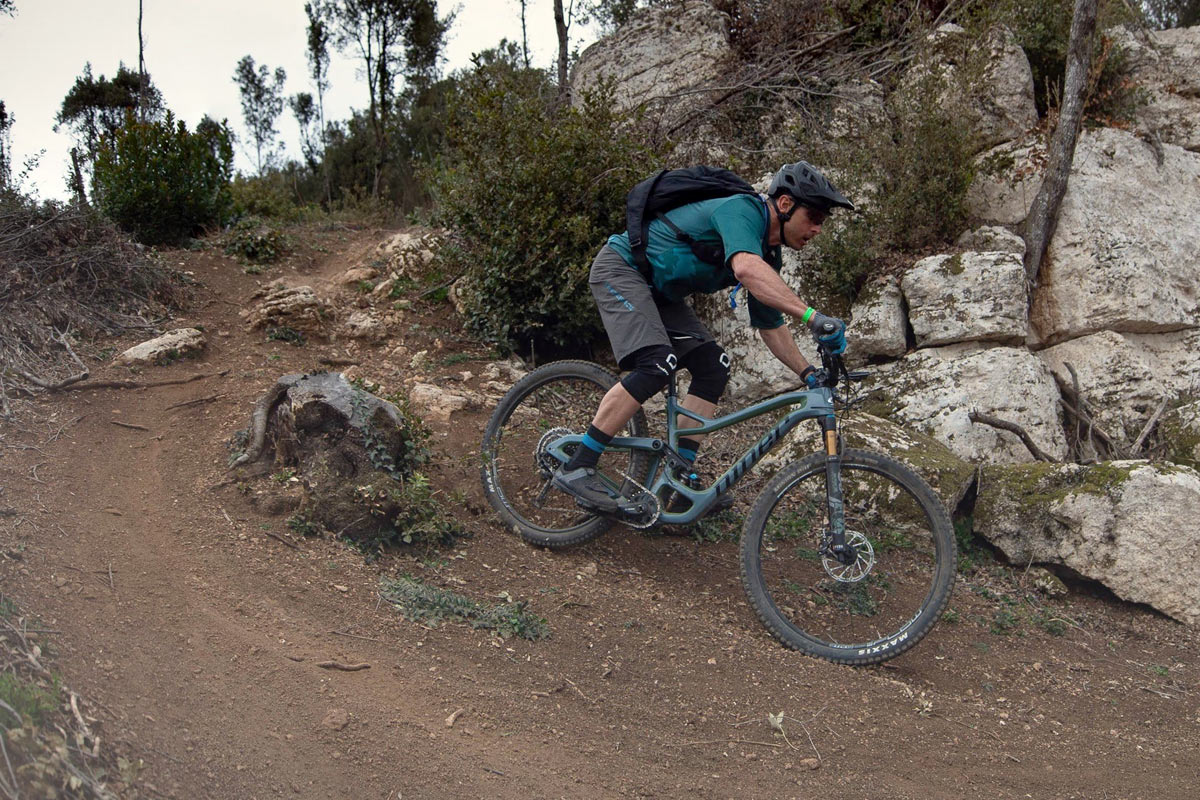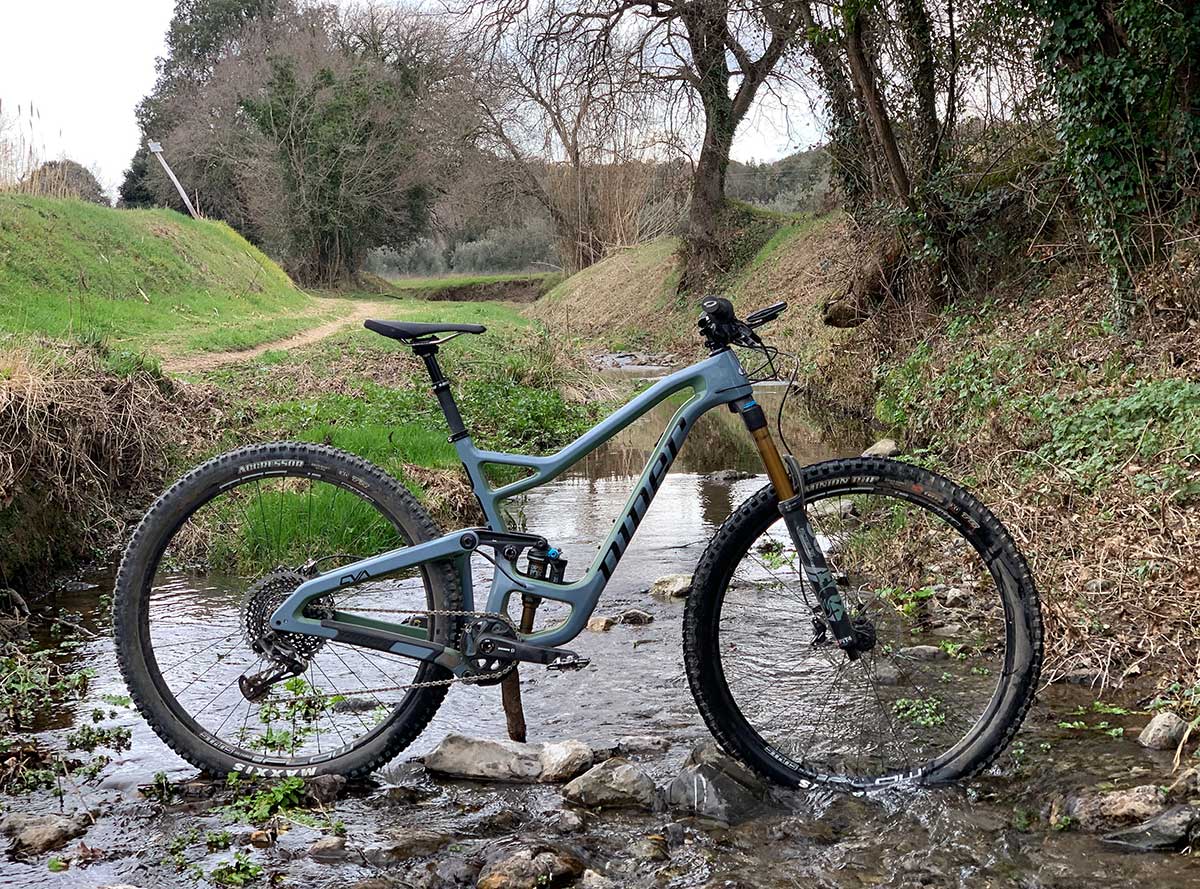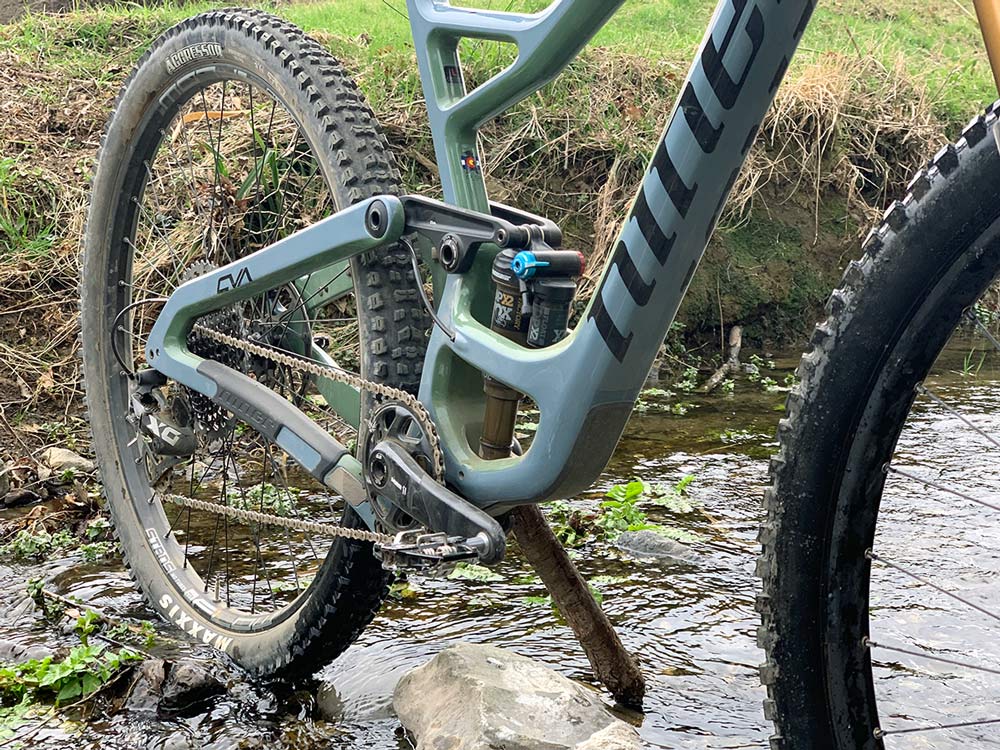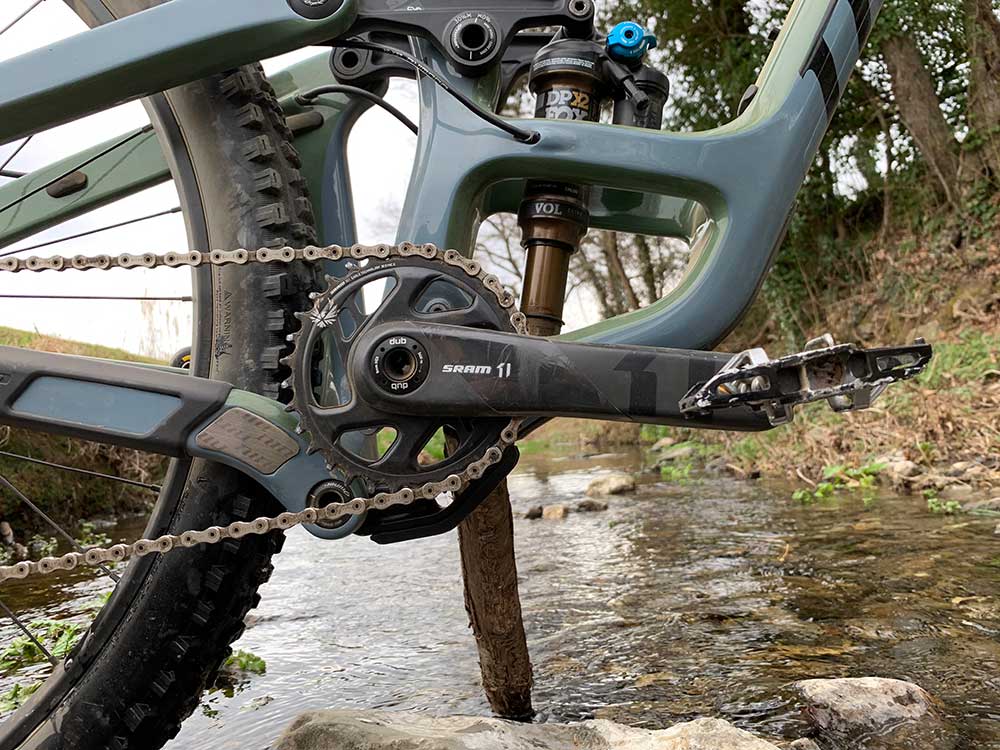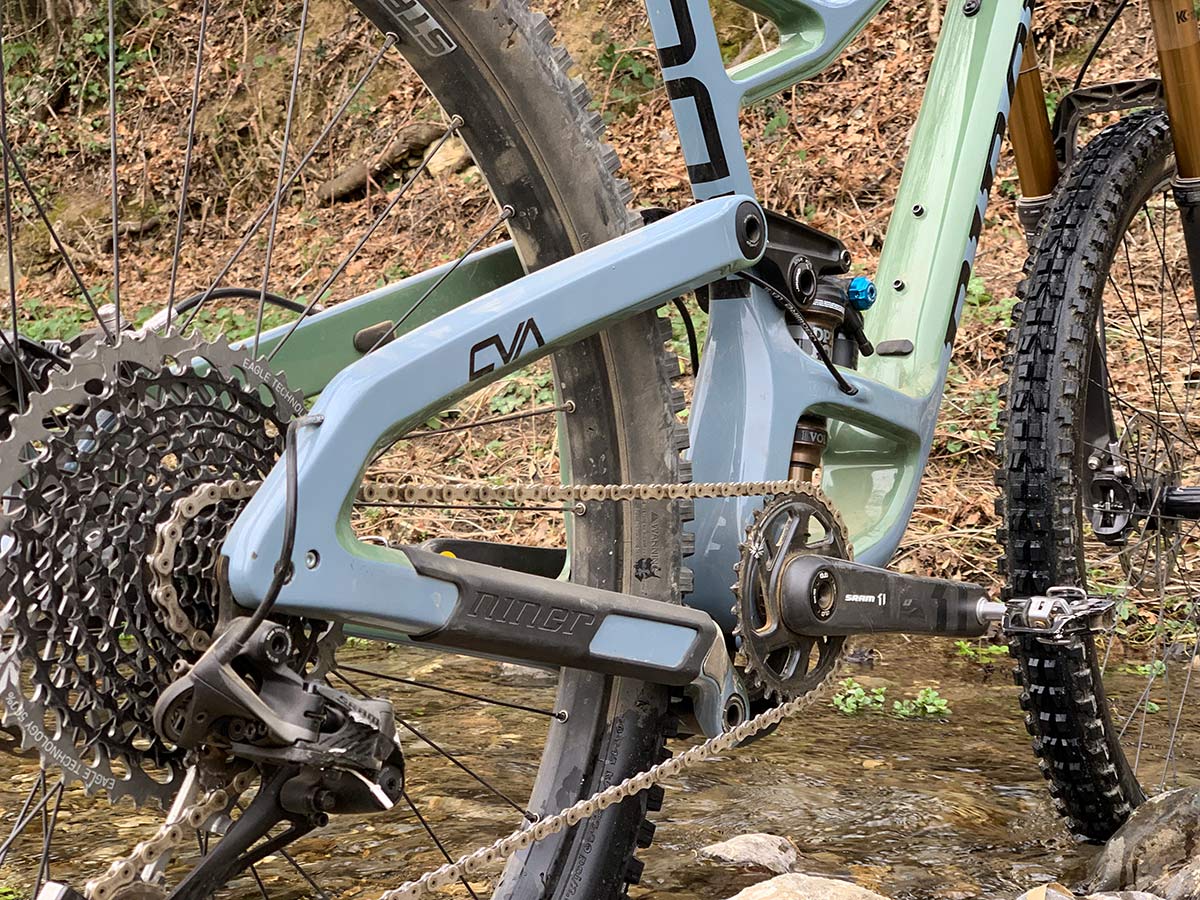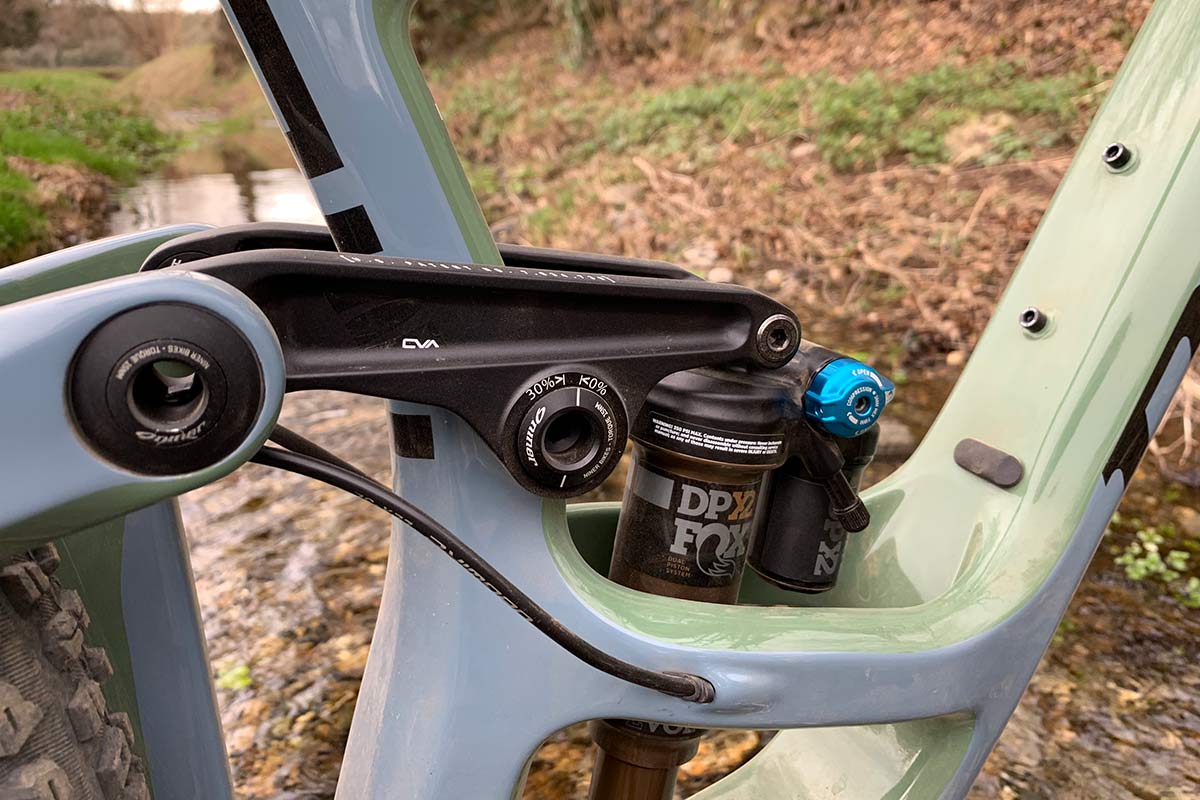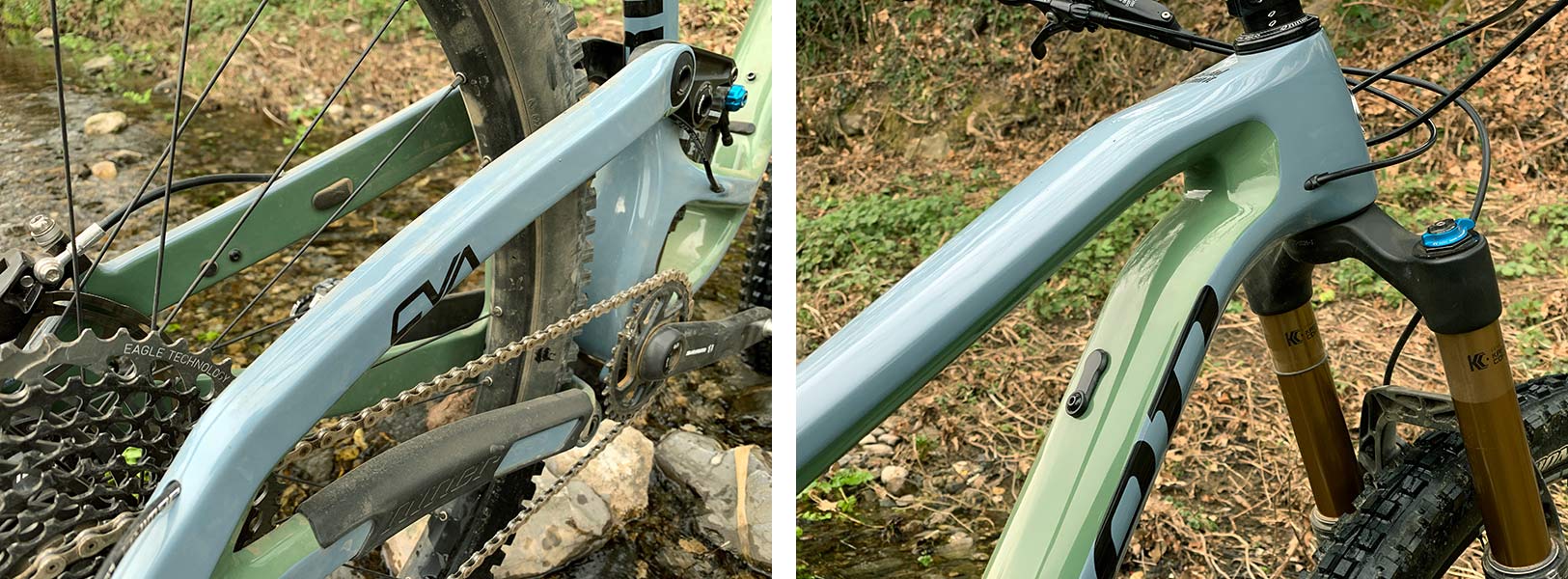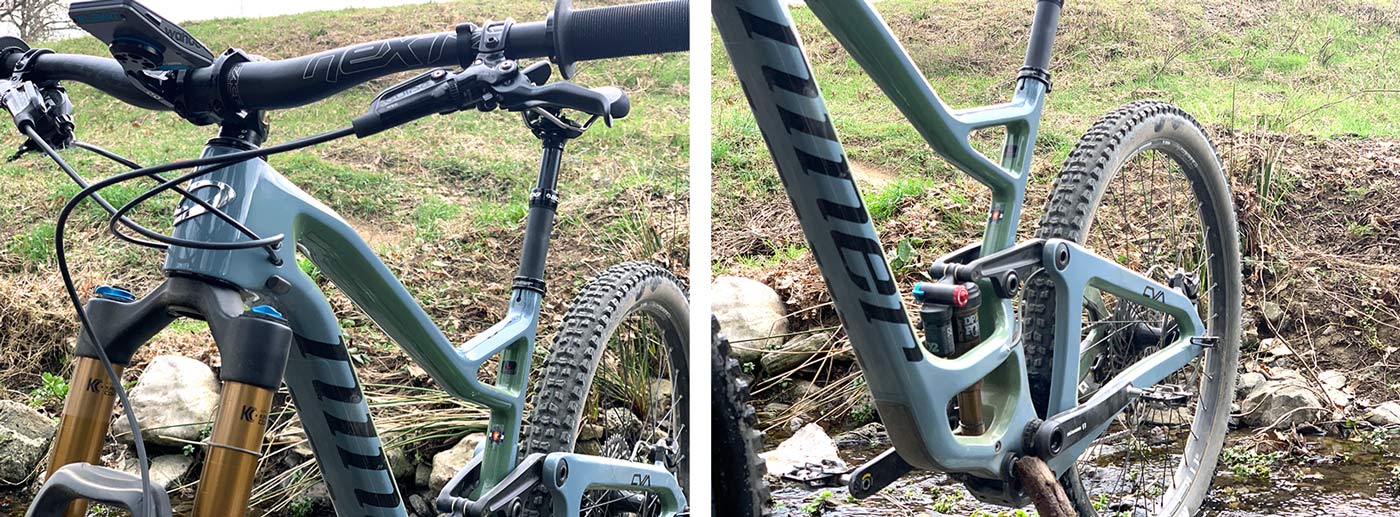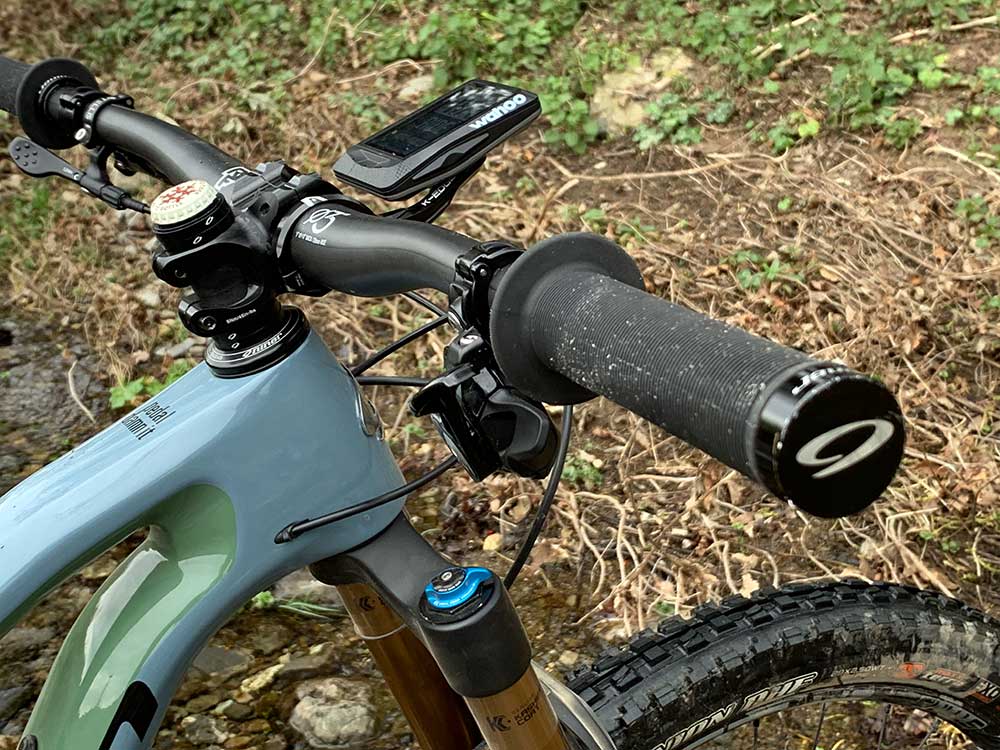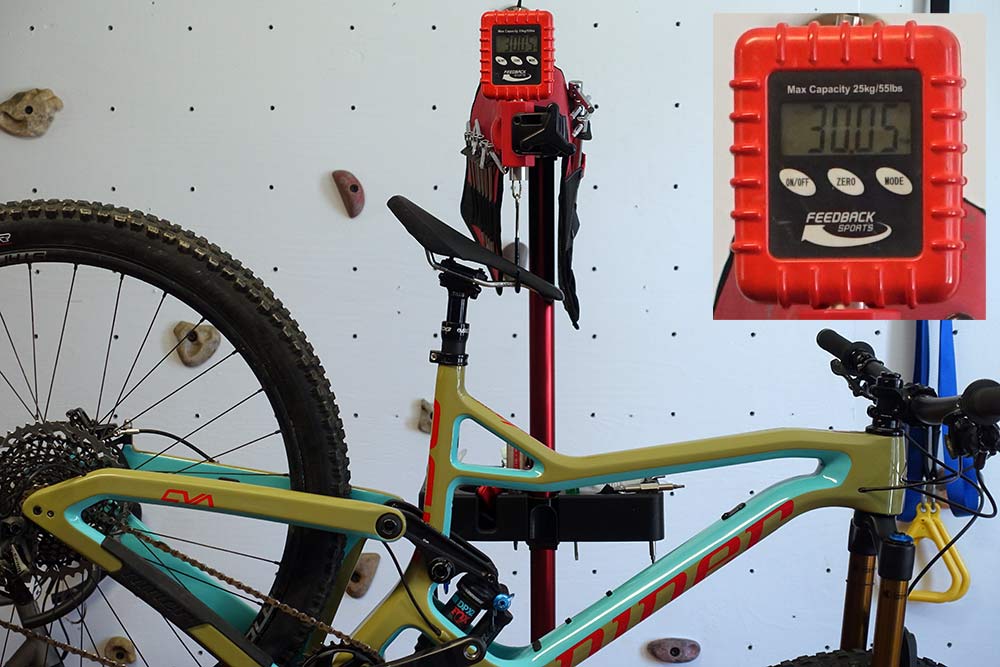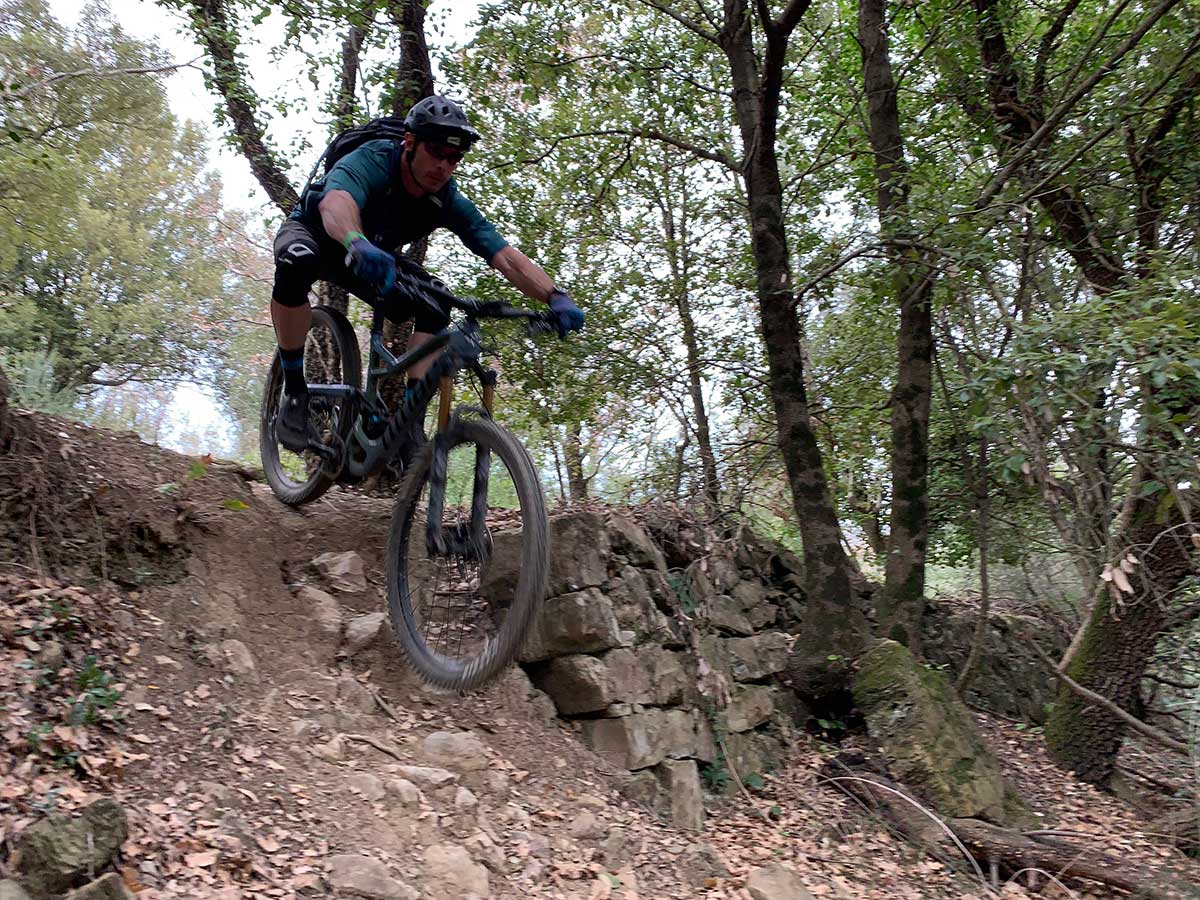Niner did a lot of things differently when it launched the all-new, completely redesigned RIP 9 RDO. It was billed as the longest, lowest, slackest bike they’d ever made. It got distinct, dedicated frames for both 29er and 27.5″ wheels. It moved the brake hose internal. It’s their first bike with a geometry-changing flip-chip. And it reworked the front end to bring the center of gravity down and the torsional stiffness way, way up. That’s a lot to change on a single bike, which can be a risk for a brand that’s done things mostly the same for a very long time. Did it work? We headed out on the trail with a brand new RIP 9 RDO 29er to see…
Niner RIP 9 RDO Video Review:
In the video above you’ll find a quick overview of the differences between this and prior versions of the RIP9, along with camera angles showing the suspension working from different angles, climbing, and descending. Plus some riding action from Massa Marittima, a town in the Tuscany region of Italy that sees constant trail building efforts and is home to a massive day in the Italian national enduro series. There’s lots of climbing, with a long, serpentine new singletrack uphill called Spaghetti that tested not just our legs, but also the bike’s ability to turn extremely tight radius corners.
RIP 9 Tech Details & Actual Weight
Visually, the new RIP 9 RDO is both familiar and different. The CVA suspension works the same as before, which is a good thing, but loses the seatstay bridge to tuck the rear wheel in closer. The lines along the top are similar to before, it’s the bottom that’s a new look for them.
The mid-frame struts that surround the shock add a lot of stiffness to the front triangle, and also concentrate the weight further down. They have another purpose, too: The rear shift and brake lines now run internal as much as possible, and guiding them through that strut puts them on the seatstays rather than the chainstays. On prior models, running that shift cable out from the BB shell and into the lower chainstay yoke led to some interesting angles that could create drag, so this design should improve long term shifting performance.
The one concern I have for long term is the low placement of the lower linkage. This is one of the inescapable truths of their CVA platform. Over the many years of testing Niner’s, I’ve really only smashed this part (on a first-generation RIP), but it can happen. Fortunately, there’s a protective plate on it.
It’s not just the side struts…look how thick that lower seat tube section is…and how wide the downtube gets at the bottom, too.
The flip chip system sits on the inside of the main pivots that connect the rear triangle to the upper rocker arm. The rocker arm gets new sag guides, a welcome addition. The rear shock puts the air valve pointing straight toward the strut, which makes it difficult (not impossible) to get your pump on there, so Niner includes an L-shaped adapter to point the hose straight out. The included Fox DPX2 rear shock’s compression mode switch (blue) is easy to reach from the riding position.
Note the Fox Live Valve port just in front of the rear shock. Others are located on the inside of the seatstay and, interestingly, high up on the topside of the downtube. We’ve inquired about this placement and will update when we hear back. It could just be the mount for the brain unit, which would put it in an easily accessible spot and explain the odd shape of the port cover.
Remaining Live Valve ports sit on under the cable entry points behind the headtube and just above the lower pivot point on the BB shell.
Niner’s new lock-on grips include a BMX-style flange and old-school ribbed texture.
Our long-term test bike is a size Large 4-star build with 29er wheels, already set up tubeless. It weighs in at 30.05lb (13.63kg) without pedals. For full pricing, specs and build, check out our launch coverage.
RIP 9 RDO Ride Review
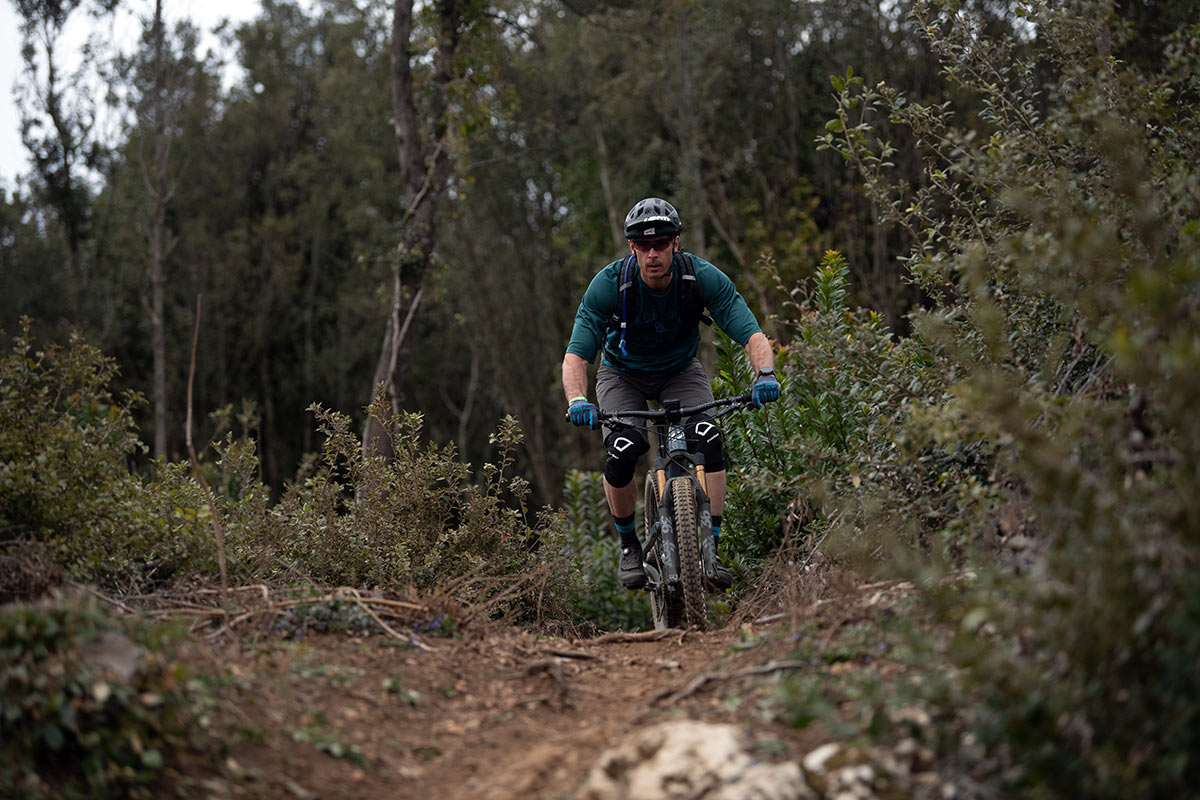
I had equal parts excitement and apprehension about riding the new RIP. OK, well, maybe mostly excitement, but there was a little weariness about how “low” they took it. Too low and I’d be hitting my pedals on everything, which is a real issue with some modern all-mountain and enduro bikes that try to keep all the weight and rider as low as possible.
Lower can also mean more BB-area strikes when popping over complicated, multi-level rock structures like what’s round in Massa. And on my home trails. While those rocks did put a solid scratch on another bike I test rode during the press event in Italy, the Niner stayed just high enough to be safe. I tested the height by standing and pedaling across a bumpy, mottled rock section, then repeating it while seated. There and on rock-strewn climbs, the bike floated over them with zero pedal strikes. One point, Niner.
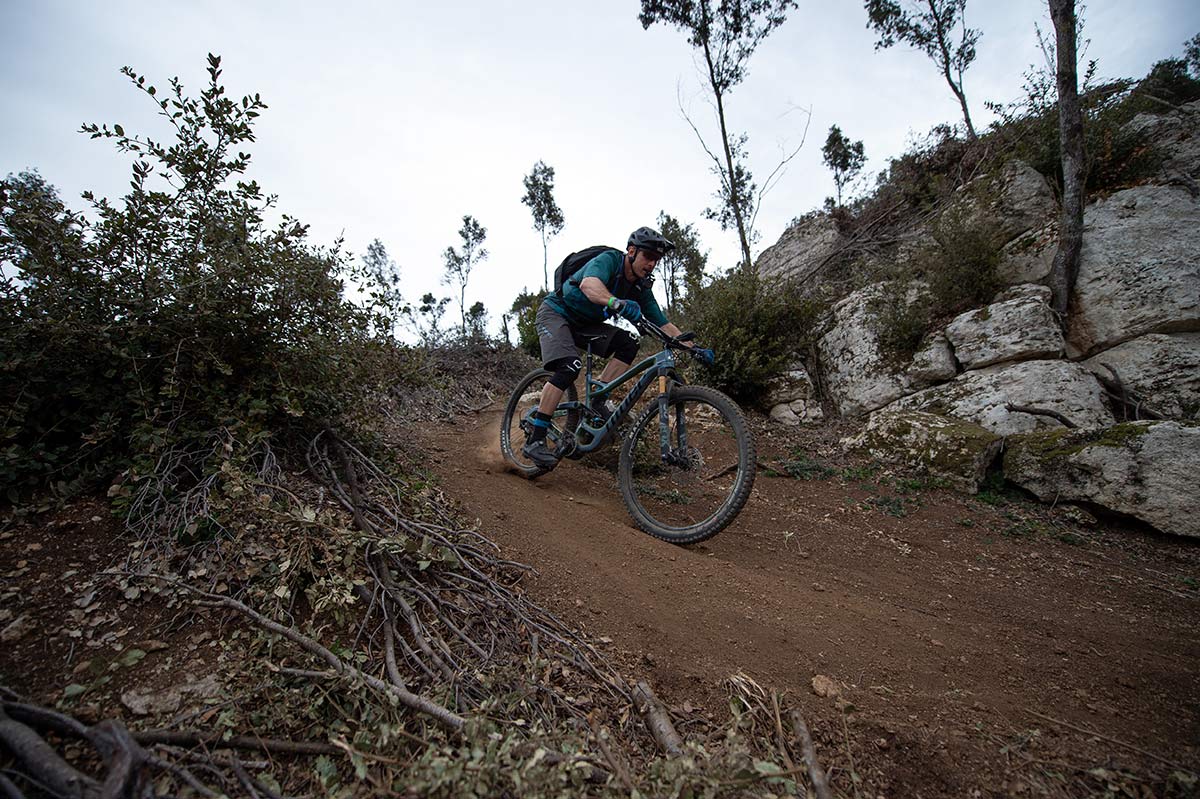
It’s when things go down that the bike gets really fun. All of Niner’s climbing-friendly CVA features are here, and most of the time I just left the rear shock in “Trail” mode for technical climbs. But point it down and the bike’s new angles and low center of gravity bring it to life. It also has a low standover, making it really easy to maneuver it over and around trail obstacles.
At speed, it’s very stable with predictable handling. And it’s here that all the parts seem to come together. Stiffness, low weight, slack front end and just enough travel keep the bike hustling through the trees. My preference is 29″ wheels, which aided the stability and definitely offer better roll-over. And with big 29×2.5 rubber on them, they grabbed the trail and kept me on course.
There are a few issues to note: My test bike’s lower linkage rear pivot worked loose over the four hours I rode it, which created an occasional squeaking noise. It didn’t seem to affect the handling, but I wouldn’t want to keep riding it in that condition. We only found it as the source of the squeak after finishing the ride. My only other quibble is the actual seat angle…it’s rather, um, angled. Which means I had to push my body forward to drop the seatpost smoothly. Was it the post, or the angle? Don’t know. I haven’t ridden the SDG Tellis before, so we’ll see. We have a long term test bike in now, which is the one shown on the scale in this post. We’ll see how all the pivots, post and everything else holds up over a summer of riding and report back.
In the meantime, first impressions suggest Niner’s got a good thing going with their new design. I wasn’t the only one enjoying it either, every other journo I spoke with had a very positive impression. Definitely worth adding to your short list and demo’ing if you can.
